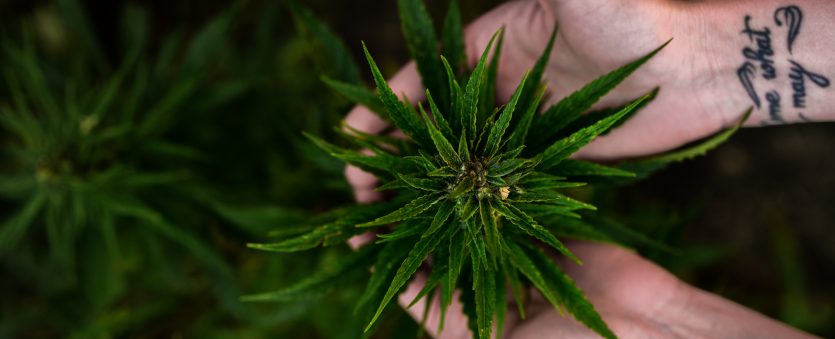Currently, the medical use of Cannabis sativa is permitted in 40 countries, while a handful of others also allow its recreational use. Combined, they represented an 18-billion- dollar global market in 2018, according to Bank of Montreal (1), and that market could skyrocket to nearly 194 billion dollars by 2026, as new countries regulate the use of Cannabis in the short and medium terms.
Beyond pure economic motivation driven by a massive market yet to be explored, the thrust of regulating Cannabis for medical purposes has also within its core a certain social appeal, given prominent results of its use in the treatment of several diseases, including cancer and schizophrenia.
Despite promising perspectives, the path towards the regulation of Cannabis sativa in Brazil, even if exclusively on medical grounds, is still very uncertain. Even though (i) there are some bills that deal with the subject currently being discussed in Congress (2) and (ii) the Brazilian Health Regulatory Agency (“Anvisa”) included the matter in its regulatory agenda through Resolutions of its Collegiate Board (“RDC”), even promoting public consultations about it, there is still some critical level of socio-political distaste regarding the regulating agenda of Cannabis, echoed by severe criticism, for instance, from Citizenship Minister Osmar Terra towards Anvisa’s recent regulatory move on the issue.
The current framework in Brazil can be synthesized as one of plain restriction, mainly imposed by Law n. 11.343/2006 (“Drugs Act”). The Drugs Act criminalizes the planting, growing, harvesting and exploitation of plants and substrates from which drugs can be extracted or produced. It also elects Anvisa as the competent regulatory authority to define what constitutes “drug” for legal purposes and allows for the agency to establish exceptions to the blank prohibition – meaning that modifications to the landscape require either legislative or Anvisa’s intervention through RDC. Legislative process towards controverted issues tend to be lengthy and therefore Anvisa plays a critical role to the development (or not) of the Cannabis agenda in Brazil.
In this context, the country is somewhat running late when compared to its Latin American peers. While in Colombia and Mexico it is possible to find well established movements towards effective regulation, Uruguay passed laws in as early as 2013, setting the scene for foreign investment, such as the launching of the first Latin American Cannabis laboratory, with a 20-million-dollar investment from the Canadian Aurora Cannabis Inc, a well-known player in the Cannabis market.
The need for specific regulation in Brazil to tackle Cannabis’ use for medical purposes is best perceived when noticed the absolute legislative vacuum on the subject. Working under the allowed exceptions of the Drugs Act, in 2015 Anvisa published the Collegiate Board Resolution – RDC n. 17/2015, allowing the import of cannabidiol-based products by patients with medical prescriptions after going through a procedure established by the agency. After 4 years, still, the import procedure is not only costly, considering that it involves imported products, but also extremely bureaucratic, given the fact that Anvisa’s decision on granting or not the import authorization is made on a case-by-case basis.
The Judiciary also plays a major role on the possibility to import Cannabis for medical use. Ruling on case REsp n. 1.657.075/PE the Superior Court of Justice (“STJ”) held in 2018 that it was possible for citizens, in very specific cases, to directly import cannabidiol-based products relying on a court decision, hence not having to go through the costly and lengthy procedures established by Anvisa. This decision of the Superior Court of Justice confirmed an understanding that had been previously adopted by several district courts.
The above-mentioned landscape halts several business initiatives that could potentially bolster Brazilian economy in times of fragile growth. Domestic projects that target Cannabis for medical use are therefore very incipient, usually devoted to either research and development or providing services to patients in need of cannabidiol-based drugs, assisting them with Anvisa’s regulatory procedures for obtaining an import authorization or representing them in court for seeking a legal order as previously stated.
Prohibiting the import of cannabidiol-based medicines and Cannabis-related businesses ignores a potential demand of 3.9 million patients and a yearly 4.7 billion BRL (roughly 1.1 billion dollar) market, as per NewFrontier in collaboration with The GreenHub data (3). Smart, efficient regulation is a first – and indispensable – move in this direction.
Prospectively, Anvisa recently concluded Public Consultations n. 654 and n. 655, both held on June/13/2019, on Cannabis growing for medical and scientific purposes and the production of domestic cannabinoid-based medicines.
Once such Public Consultations were concluded, on October/08/2019 the agency’s Collegiate Board begun voting regulatory propositions addressing the subject. New suggestions to the Resolutions’ texts, however, were made by the Directors, postponing the agency’s decision to the following week. On October/15/2019, two Directors requested additional time to analyze the issue and, up to now, there is a deadlock regarding when the discussion will be resumed, as well as what will be the resolutions’ final wording.
In the meanwhile, given the absence of legislative bills mature enough or nearby passing in Congress, the main character’s role might as well be played by Brazil’s Supreme Court (“STF”). The case ADI 5708/DF (declaration of unconstitutionality) has a claim for the decriminalization of Cannabis for medical purposes and awaits decision – no clue, however, on when that will happen. It must be duly noted that the Office of the Federal Prosecutor recently presented, in that case, an opinion according to which the STF should assign a clear timetable for Anvisa to publish regulations on Cannabis’ growing for medical purposes.
All that said, regardless of whether it is going to be through regulatory (Anvisa), legislative or judicial initiative, it is critical that Brazil establishes a clear and efficient framework dealing with the use of Cannabis for medical purposes (planting, growing and commercialization), as to address pressing social needs regarding health but also allow investment alternatives that promote economic and social development. This must be done with the overcoming of regulatory lagging and often groundless prejudices that surround the subject.
(2) See, for instance, House of Representatives’ Bill n. 399/2015, which is the most advanced initiative.
LL.B. and MSc in Corporate Law from University of São Paulo (USP). Doctor of Law (JSD/SJD) degree in Corporate Law Candidate at University of São Paulo (USP), with extensions in Private Equity and Venture Capital at Universität Basel and INSPER.
Brazilian Attorney and Head of Corporate/M&A Practice at Andrade Chamas Advogados.
Wanessa Santana de Oliveira
LL.B. from University of Londrina (UEL). Civil Law Specialist from University of Londrina (UEL). GPLLM Candidate – Innovation and Technology at University of Toronto.
Brazilian Attorney and Of-Counsel at Andrade Chamas Advogados.
Felipe Ferreira
Law student at University of São Paulo (USP).
Paralegal at Andrade Chamas Advogados.

